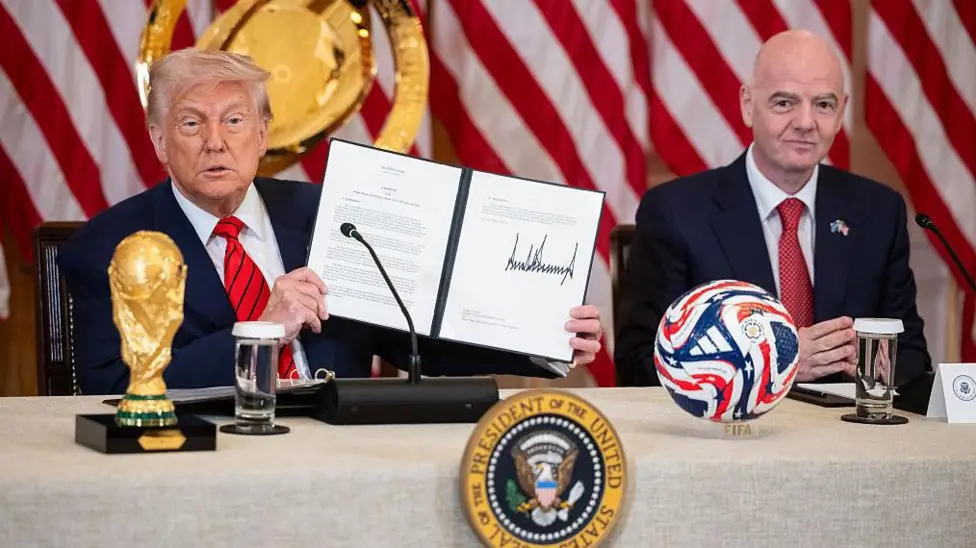At the inaugural meeting of the 2026 World Cup taskforce, US President Donald Trump suggested that the opportunity for Russia to participate in the tournament could act as a diplomatic lever to end the war in Ukraine.
The Russian national team has been banned from international football since 2022 following its invasion of Ukraine. The ban, imposed by both FIFA and UEFA, excludes Russia from all major competitions, including the 2026 World Cup, which will be co-hosted by the United States, Canada, and Mexico.
Trump, who is running for a second presidential term in the November 2024 election, has repeatedly vowed to end the war in Ukraine on “day one” if re-elected. Speaking in Washington alongside FIFA President Gianni Infantino, Trump appeared surprised to learn that Russia was still barred from participating in international tournaments.
“I didn’t know that. Is that right?” Trump asked, turning to Infantino.
“That is right,” Infantino responded. “They are banned for the time being from playing, but we hope that something happens and peace will happen so that
can be readmitted.”
Trump seized on the point as a potential motivator. “That’s possible. Hey, that could be a good incentive, right?” he said. “We want to get them to stop. We want them to stop. Five thousand young people a week are being killed — it’s not even believable.”
While suggesting that the prospect of World Cup participation could help prompt peace talks, Trump was quick to distance himself from any formal role in FIFA’s decision-making process, saying, “He [Infantino] is the boss. I have nothing to do with it.”
The comments come at a politically sensitive time, as the United States prepares to welcome fans from all over the world to the 2026 World Cup. The tournament, expected to be the biggest in history with 104 matches, will feature 78 games in the US alone, including the final.
Immigration, security take centre stage
Also present at the meeting was US Vice President JD Vance, who struck a harder tone regarding immigration. While emphasising that the US looks forward to welcoming international fans, Vance made it clear that visitors must return home after the event.
“We want them to come. We want them to celebrate. We want them to watch the game,” said Vance. “But when the time is up, they’ll have to go home.”
This sentiment was echoed by Homeland Security Secretary Kristi Noem, who revealed that visa processing for international fans is already underway.
“That is going to be a precursor to what we can do next year for the World Cup as well. It is all being facilitated,” Noem said.
The World Tourism Forum Institute recently warned that strict immigration policies and rising global tensions could disrupt the expected influx of nearly two million overseas visitors.
Despite the political backdrop, FIFA has not indicated any imminent decision regarding Russia’s potential reinstatement. The organisation has so far remained firm in its stance, insisting that participation in its competitions must align with its principles of peace and fair play.
BBC Sport has contacted FIFA for further comment on whether Russia’s ban could be lifted ahead of the 2026 tournament.
For now, the intersection of geopolitics and global sport remains delicate. Whether football can serve as a tool for peace, as Trump suggests, or whether it remains another arena marked by division, is a question that may shape both the tournament and the global stage in the years to come.



